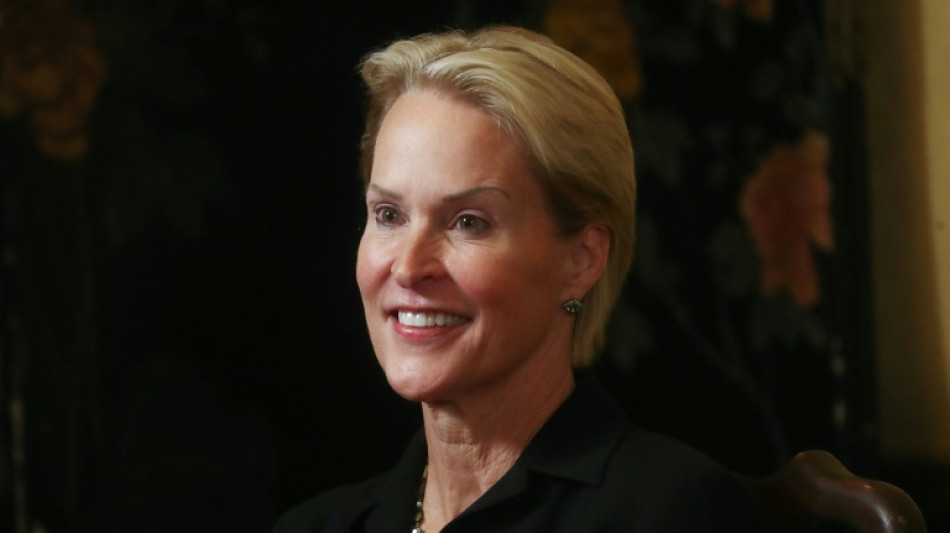
-
 Hamas official says group still needs time to study Trump's Gaza plan
Hamas official says group still needs time to study Trump's Gaza plan
-
Goffin beats Shelton in first Shanghai Masters shock
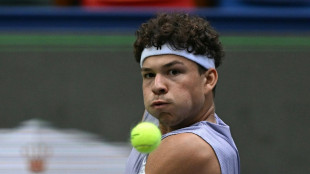
-
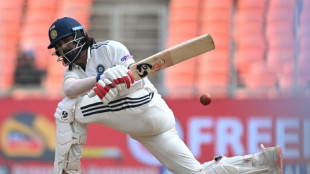 Ton-up Rahul, Gill steer India into lead in West Indies Test
Ton-up Rahul, Gill steer India into lead in West Indies Test
-
Spain's Benidorm embraces its Franco-era mass tourism model
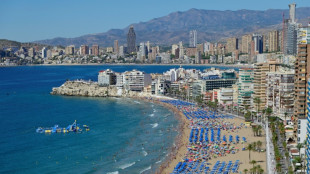
-
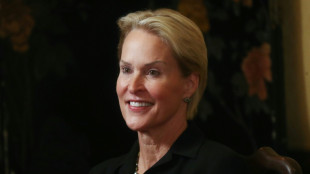 Not all 'A's: Unconventional paths that led to Nobels
Not all 'A's: Unconventional paths that led to Nobels
-
New York judge to sentence Sean 'Diddy' Combs after blockbuster trial
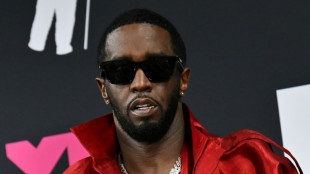
-
 Typhoon Bualoi death toll in Vietnam tops 50
Typhoon Bualoi death toll in Vietnam tops 50
-
Indonesia free meals programme under fire after thousands sickened
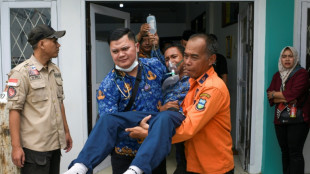
-
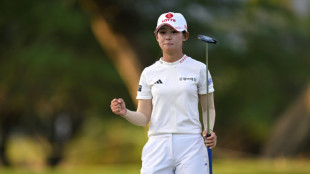 South Korea's Hwang charges into Hawaii LPGA lead
South Korea's Hwang charges into Hawaii LPGA lead
-
Munich airport resumes flights after drone sightings trigger closure
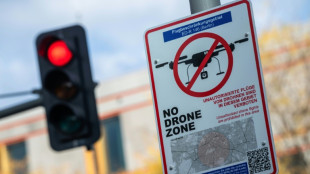
-
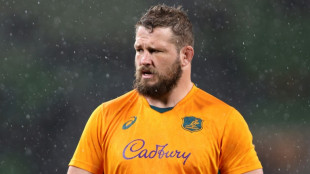 Wallabies vow to send Slipper off on a high against All Blacks
Wallabies vow to send Slipper off on a high against All Blacks
-
Cyberattack halts shipments from Japan's biggest brewer
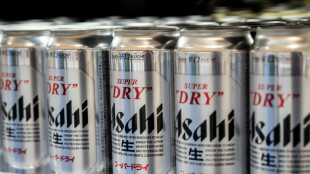
-
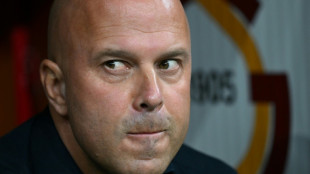 Liverpool seek to steady ship, Man Utd's Amorim faces must-win game
Liverpool seek to steady ship, Man Utd's Amorim faces must-win game
-
Luxembourg gets new Grand Duke with royal abdication
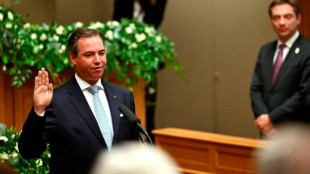
-
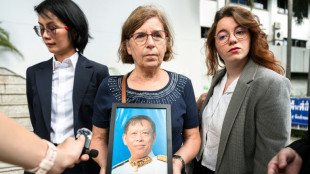 Cambodian ex-MP's killer jailed for life in Thailand
Cambodian ex-MP's killer jailed for life in Thailand
-
Czechs head to polls with billionaire ex-premier tipped to come first

-
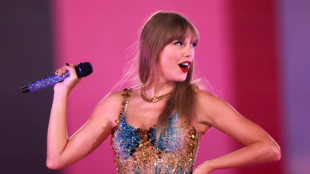 Taylor Swift moves into 'Showgirl' era with new pop album
Taylor Swift moves into 'Showgirl' era with new pop album
-
Last flotilla boat sails on towards Gaza after Israel interceptions

-
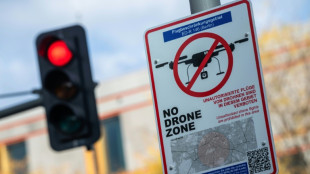 Munich airport halts flights after drone sightings
Munich airport halts flights after drone sightings
-
Rookie Schlittler pitches gem, Yankees beat Red Sox to advance in MLB playoffs
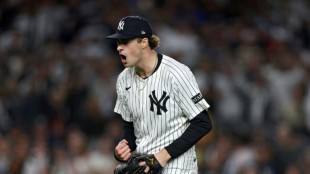
-
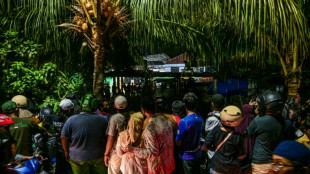 Indonesia school collapse death toll rises to 7: rescue official
Indonesia school collapse death toll rises to 7: rescue official
-
China trials 'energy-saving' underwater data centres

-
 Tech fans Tokyo rally on broadly positive day for Asian markets
Tech fans Tokyo rally on broadly positive day for Asian markets
-
Group leading Morocco protests demands govt dismissal

-
 Virtual Jesus? People of faith divided as AI enters religion
Virtual Jesus? People of faith divided as AI enters religion
-
McEvoy calls on World Aquatics to make 25m sprint an official event
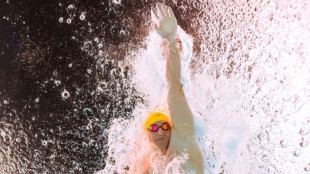
-
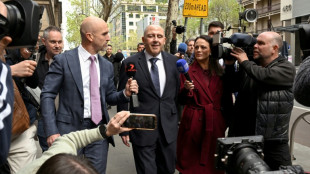 Australian drug kingpin to face retrial in police informant scandal
Australian drug kingpin to face retrial in police informant scandal
-
Staniforth predicts All Blacks honours for 'freak' Manu before Top 14 match-up
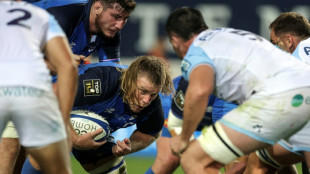
-
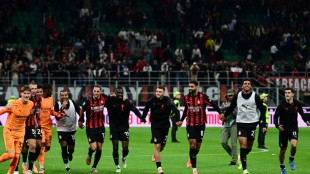 AC Milan face Scudetto rivals Juve after landmark San Siro ruling
AC Milan face Scudetto rivals Juve after landmark San Siro ruling
-
Tensions rising at Real Madrid before Villarreal test
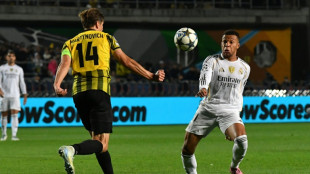
-
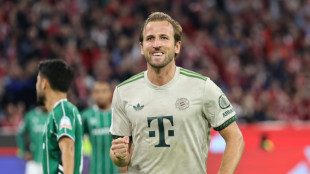 Top four face off in early Bundesliga litmus test
Top four face off in early Bundesliga litmus test
-
Could PSG finally be there for the taking in Ligue 1?
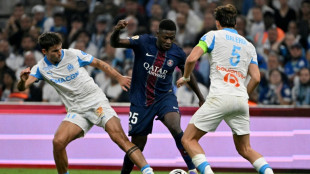
-
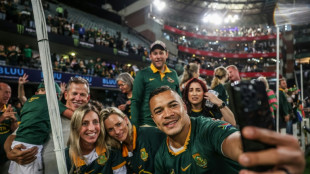 South Africa eye back-to-back Rugby Championship crowns
South Africa eye back-to-back Rugby Championship crowns
-
Sean 'Diddy' Combs asks judge for 'mercy' ahead of sentencing
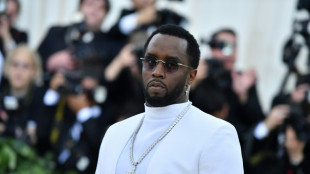
-
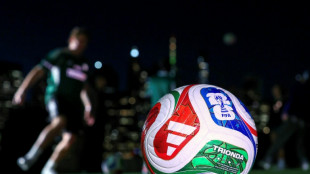 FIFA unveils Trionda, the official ball of the 2026 World Cup
FIFA unveils Trionda, the official ball of the 2026 World Cup
-
Higgo in four-way tie for PGA Tour lead in Mississippi
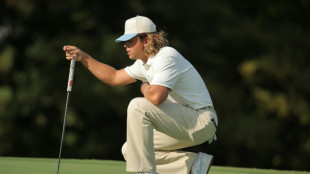
-
 New Zealand eruption survivors tell of horror on first day of inquest
New Zealand eruption survivors tell of horror on first day of inquest
-
Put the bright stripes away, Pope's Swiss Guards get new garb
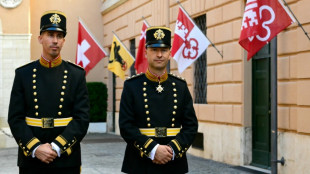
-
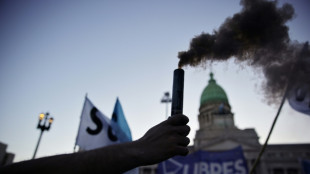 New setback for Milei as Argentine Congress overturns spending vetoes
New setback for Milei as Argentine Congress overturns spending vetoes
-
Canada reports first death linked to measles epidemic
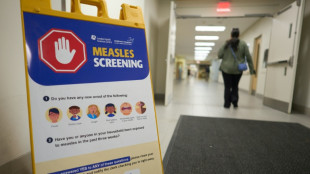
-
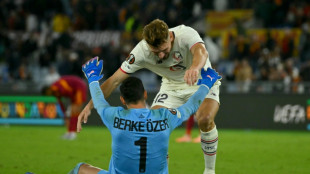 Lille goalkeeper saves three penalties in Europa League win
Lille goalkeeper saves three penalties in Europa League win
-
Frenchwoman who escaped Nazi massacre dies aged 100
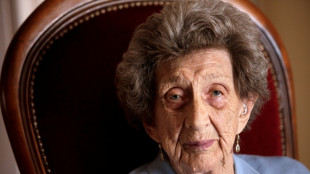
-
 Protests worldwide condemn Israeli interception of Gaza flotilla
Protests worldwide condemn Israeli interception of Gaza flotilla
-
US regulator approves new generic abortion pill, conservatives outraged
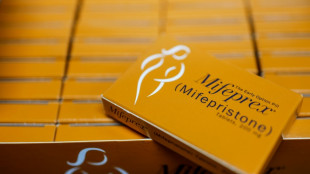
-
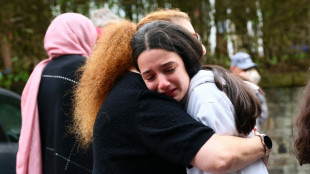 'Resentment': Synagogue attack shocks Manchester Jewish community
'Resentment': Synagogue attack shocks Manchester Jewish community
-
Villa win in Europa League as Forest and Scottish clubs lose
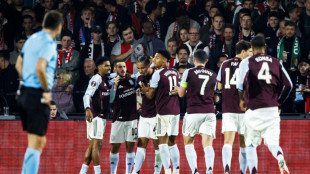
-
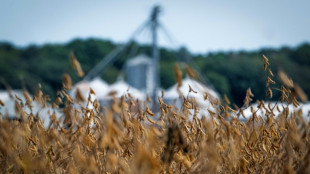 US farmers hit by trade war to get 'substantial' aid: Treasury chief
US farmers hit by trade war to get 'substantial' aid: Treasury chief
-
'Terrorist attack' on UK synagogue kills two: police
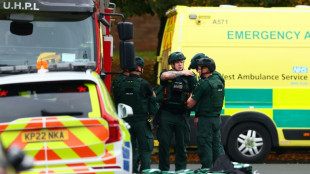
-
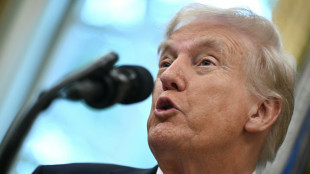 Trump declares 'armed conflict' with drug cartels
Trump declares 'armed conflict' with drug cartels
-
Pulisic, McKennie headline US squad for October friendlies
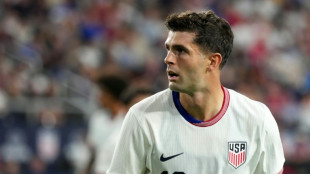

Not all 'A's: Unconventional paths that led to Nobels
Some Nobel laureates were straight-A students from the get-go. But others AFP spoke to recounted how they cut class, got expelled, and had doubts about their future.
Perhaps the most illustrious Nobel Prize winner, Albert Einstein, was once a mediocre student at Zurich Polytechnic School, now ETH Zurich.
The young Einstein skipped classes, wanted to study physics exclusively, and finished second-last in his class in 1900.
After graduating, he was the only student not offered a research assistant position, according to the Swiss university's website.
Einstein went on to win the Nobel Prize in Physics in 1921.
Frances Arnold, who won the 2018 Nobel Prize in Chemistry, also cut classes after a turbulent start to her education in the United States during the 1960s and 1970s.
"I was disruptive. I was just bored and well beyond what the rest of the kids in the class were doing. And the teachers often gave me little projects decorating the classroom and things like that," she recalled in an interview with AFP.
At the age of 10, she was allowed to take high school courses such as geometry -- a challenge she appreciated at first.
But by the time she reached her teens, she wasn't enjoying school anymore to the point that she stopped going and was expelled.
"I guess I wasn't interested in what they had to teach us. Or if I was interested in it, I just learned it on my own from a textbook. So I managed to pass all my classes despite many absences, I would say."
Now aged 69, she acknowledges that hers is not a model to follow, but believes schools should show more flexibility.
"They don't have the wherewithal to do anything special for the kids who really would benefit," she lamented.
- Overcoming challenges -
David Card, the 2021 Nobel economics laureate, also had unconventional educational beginnings.
"There's almost nobody I've met... in an economics PhD programme that has a background like mine where they went to a rural school," he told AFP.
Born on a farm in Canada in the 1950s, he was enrolled in a small one-room schoolhouse, where one teacher taught around 30 students at different grade levels.
"The way the teacher did it was she would spend some time with each row, which was one of the grades. I actually paid attention to a couple of grades beyond mine for most of the material," he said.
"So you could kind of accelerate very quickly, very easily."
The system was less ideal for students who needed more individualised support, he acknowledged.
According to the Nobel Foundation, other laureates had to overcome major academic challenges before going on to win the prestigious Nobel.
The first woman to win the economics prize, Elinor Ostrom, was turned down when she applied for a PhD in economics; 2009 medicine prize laureate Carol Greider struggled with dyslexia as a child; and 2015 chemistry prize winner Tomas Lindahl failed chemistry in high school.
- Humble beginnings -
Arnold and Card both started working at a young age, which the two consider an important life experience.
In her teens, Arnold held odd jobs as a waitress, receptionist and taxi driver.
"You appreciate more what the university education can give to you, in terms of getting a job you actually might want to have for the rest of your life."
"It also teaches you how to organise your time."
Similarly, Card juggled school and farm life very early on.
"I don't think there was that much homework back then in my schools. So there was lots of time," he recalled.
"I helped my father. I learned to drive a tractor when I was about 11. Every morning I got up at 5:00 am and helped him milk the cows and then I would have a shower and go to school."
Both prizewinners also studied other subjects before discovering their respective passions.
Arnold pursued studies in mechanical engineering and aeronautics before turning to chemistry.
"I wasn't sure what I wanted to do with my life. I went into mechanical engineering because it had the fewest requirements for engineering," she admitted.
And Card initially studied physics before switching to economics.
Despite their unconventional paths, both ultimately found their way to brilliance.
O.Farraj--SF-PST
